Iran's Foreign Trade Balance Shows Nearly $5 Billion Deficit
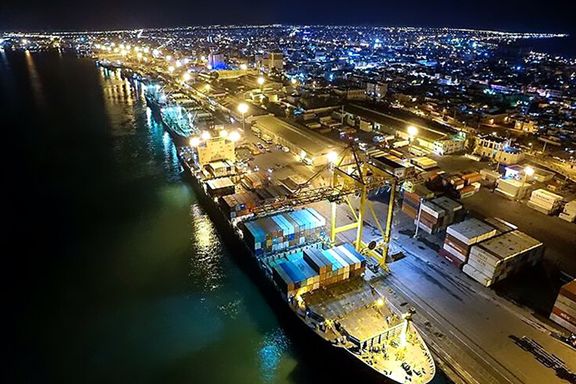
A report released by the Islamic Republic of Iran Customs Administration reveals there has been a decline in the country’s export value of almost $5 billion between March and July 2023.

A report released by the Islamic Republic of Iran Customs Administration reveals there has been a decline in the country’s export value of almost $5 billion between March and July 2023.
During this period, which marks the first five months of the Iranian calendar year, the total value of Iran's foreign trade reached $43.5 billion with 55.9 million tons of goods worth $19.3 billion being exported. Although Iran's exports have increased by about 27% compared to the same period last year, non-oil exports have decreased by 8.6% in terms of value.
The report shows that the amount of goods imported into Iran was 14.4 million tons worth $24.2 billion, which had a growth of 2.17% in terms of weight and 7.49% in terms of value. However, Iran's overall trade balance was in deficit of $4.9 billion at the end of these five months.
The main reason for the decrease, according to customs experts, is the decline in the global prices of petrochemical exports, which account for a big share of the Iranian exported output.
According to the customs administration, the main destinations for Iran's exports were China with $5.6 billion, Iraq with $3.5 billion, the United Arab Emirates with $2.3 billion, Turkey with $2.2 billion, and India with $845 million – with these nations accounting for over 75% of weight and approximately 75% of the total export value from March to July.
The geography for imported goods bore a similar profile with the United Arab Emirates at $7.3 billion, China at $7.1 billion, Turkey at $2.5 billion, Germany at $879 million, and India at $813 million.
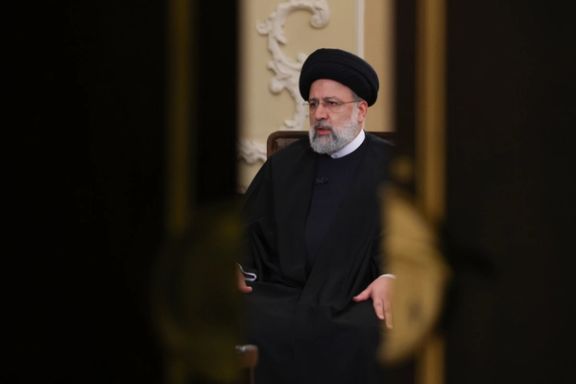
Iran's Minister of Culture has praised President Raisi’s character as a trusted leader of the Islamic Republic, saying he has been “tested across various critical junctures.”
Mohammad-Mehdi Esmaeili, speaking in support of the president, also highlighted that during his youth, Raisi was entrusted with numerous judicial missions by the late Ruhollah Khomeini, the founding leader of the Islamic Republic.
President Raisi is facing domestic and international scrutiny due to his alleged involvement in orchestrating mass prison executions in 1988. Many of these executions targeted individuals associated with opposition groups such as the Mujahedin-e Khalq Organization (MEK), as well as leftist, secular, and Kurdish organizations.
Raisi was a member of an ad hoc judicial committee colloquially known as the "Death Commission." This committee was responsible for deciding the fates of prisoners during summary trials that were held in secret. While Raisi has denied direct involvement in issuing sentences, he has defended the actions against the MEK, citing their history of “violence” as justification.
Notably, some prisoners had been previously released from incarceration, only to be rearrested and retried during the execution spree, which was also referred to as a prison purge. The intention behind these retrials was to ensure prisoners fully denounced the MEK and demonstrated repentance.
The precise number of prisoners executed during the 1988 purges remains uncertain. However, according to Amnesty International, the Iranian authorities "forcibly disappeared" and "extrajudicially executed" an estimated 5,000 individuals between July and September 1988.
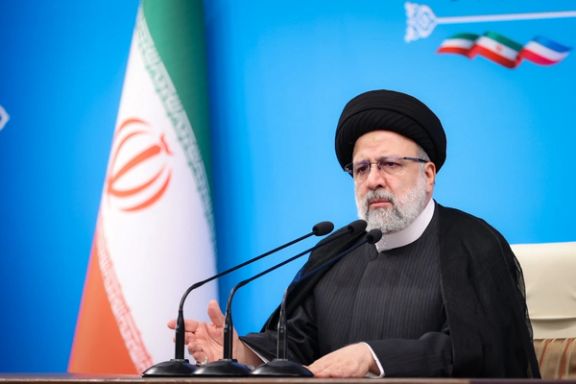
Iranian President Ebrahim Raisi called on Japan on Tuesday to display its independence from Washington by releasing Tehran's frozen assets despite US sanctions.
"Japan should act independently from the US by releasing our blocked funds," Raisi said when asked by a Japanese reporter about $1.5 billion of blocked funds in Japan.
He then appeared to contradict himself, saying, "I must clarify that our Central Bank earlier said we only had unjustly frozen funds in South Korea. All other assets abroad are at the disposal of Iran's Central Bank.”
Tehran and Washington have reached an agreement in which five US citizens held in Iran will be freed in exchange for $6 billion of Iranian assets frozen in South Korea.
On August 10, Iran allowed four detained US citizens to move into house arrest from Tehran's Evin prison. A fifth was already under home confinement. They are expected to leave Iran when the money reaches accounts in Qatar.
The deal has led to sharp criticism and questioning by US lawmakers and many Iranian Americans, who say the Biden administration made a deal in secret and it is not clear what other concessions it has made to the Islamic Republic. Many critics also say that payment of ransom for hostages will endanger the lives of other Americans by emboldening the Iranian regime and other adversaries.
(With reporting by Reuters)
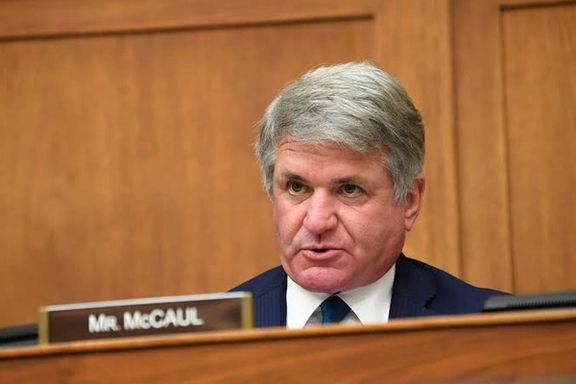
House committee chair Michael McCaul has expressed concern over an alleged US memo obtained by Iran’s government, while the State Department refuses to comment.
Tehran Times, an Iranian government newspaper August 27 published a US government memo purportedly sent to US Iran envoy Robert Malley informing him of his security access suspension.
US House Foreign Affairs Committee chairman McCaul issued a brief statement on Monday voicing deep concern that an alleged State Department memo has reached the Iranian government, while the US Congress knows very little about why Malley has been suspended without pay.
“If this memo is authentic, it is extremely concerning especially since this is not the first time the Iranian regime’s mouthpiece has appeared to have sensitive U.S. government information recently while Congress is kept in the dark,”McCaul said in his statement.
The State Department refused to comment on Monday when asked by Iran International. A spokesperson said, “We are aware of these reports,” but “The department does not comment on internal matters.” The Spokesperson added, “We have nothing further to share at this time due to privacy considerations.”
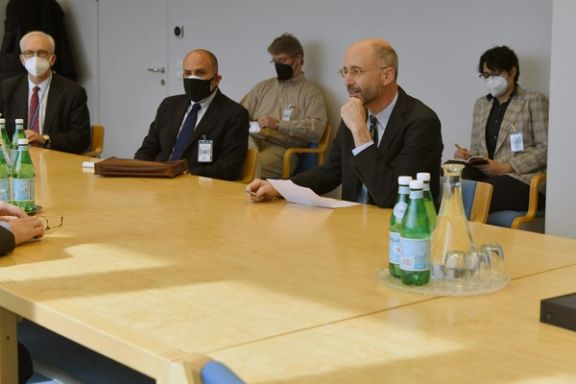
Iran International first reported June 29 that Malley had been absent for a considerable time, his security clearance was suspended, and he is under investigation related to his handling of classified documents. The Involvement of the Federal Bureau of Investigation was also reported, although until now no official details have been announced, except that Malley is on “unpaid leave.”
The document published by Tehran Times, purportedly from Erin Smart, Director of the State Department's Bureau of Diplomatic Security, Office of Personnel Security and Suitability, cites three reasons for Malley's suspension: “Personal Conduct,” “Handling of Protected Information,” and “Use of Information Technology.” The memorandum further underscores that Malley's “continued national security eligibility is not clearly consistent with the interests of national security."
While Iran International has yet to independently verify the document's authenticity, it has been informally corroborated by two congressional sources, who have described it as seemingly "authentic." Politico also reported that a source “familiar with the investigation into Malley who has seen the original memo…that the Tehran Times’ version appeared to match that original.”
The Biden administration's refusal to provide more information to Congress even in a confidential briefing, arguing that privacy considerations are a hindrance, has led McCaul to threaten a subpoena.
“I have requested transparency from the State Department on the ongoing Robert Malley saga and will continue to demand answers,” the Chairman said in his statement.
He concluded by suggesting that there could be a security breach at the State Department. “This latest chapter raises serious questions about how the regime obtained this potentially authentic document and what other sensitive or classified information they may have. The State Department needs to do a top to bottom security review, because I am concerned they have a leak.”
Other Republicans, who were already angry about the Biden administration agreeing to release $9 billion of Iran’s funds from South Korea and Iraq, also started to weigh in.
“It is shocking and, to my knowledge, unprecedented that a propaganda arm of Iran’s terrorist regime got its hands on what appears to be a ‘Sensitive But Unclassified’ April 2023 memo related to the suspension of Special Envoy Rob Malley’s security clearance,” Sen. Bill Hagerty, member of the Senate Foreign Relations Committee said in a statement.He asked for the State Department Inspector General to investigate how the Tehran Times obtained the Malley memo.
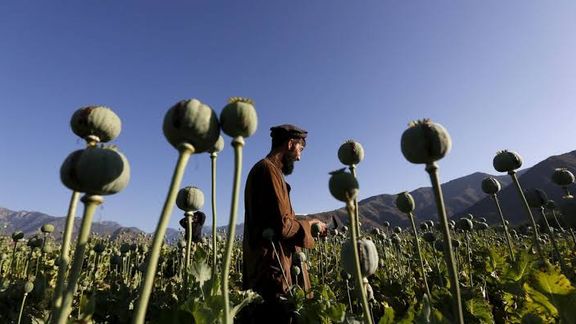
A group of Iranian MPs has praised the "remarkable progress" of the Taliban in their fight against drugs and "ensuring security in Afghanistan."
On Monday, a group of parliament members met with Mohammad Abdul Kabir, the Deputy Prime Minister of the Taliban and released a statement, "With the emergence of the Islamic Emirate government, the fight against the production and distribution of drugs in Afghanistan has been pursued, which also has an impact on Iran."
However, evidence suggests that poppy production and the cultivation of narcotics is on the rise. Eskandar Momeni, the Secretary-General of the Anti-Narcotics Headquarters of Iran said earlier this spring that despite the promises made by the Taliban and based on the official statistics of the United Nations, drug cultivation and production in Afghanistan had increased in the past year.
He said that Afghanistan currently holds the "first rank in opium production" and the "second rank in industrial drug production, including methamphetamine" in the world. The United Nations Office on Drugs and Crime states that Afghanistan produced 80% of the world's opium in 2022.
Therefore, despite Iran’s praise and the claims by Taliban officials to be working towards limiting and eventually eliminating drug cultivation and distribution, the statistics do not support their rhetoric.

The leader of Canada’s Conservative Party, running to be the next prime minister, has vowed to “kick out” Iran’s Revolutionary Guards if he wins office.
Pierre Poilievre is also the leader of the country’s Official Opposition -- the party possessing the most seats in the House of Commons that is not the governing party. The Conservative Party of Canada, or the Tories, is leading in opinion polls and projections for the upcoming federal election, slated to take place on or before October 20, 2025, to elect members of the House of Commons to the 45th Canadian Parliament.
After a campaign event among Iranian Canadians on Sunday, Poilievre said on his X account, “Inspiring a group of freedom-loving Canadians who want to ban IRGC terrorists and kick regime thugs out of Canada. That is what I will do.”
Echoing the same sentiments, Anna Roberts -- another Conservative Party parliamentarian – said after another campaign event for Poilievre that “IRGC terrorists should not be free to roam our streets and should be kicked out of Canada.” “A common sense Conservative government will bring home safety in our streets,” she added on her X account.
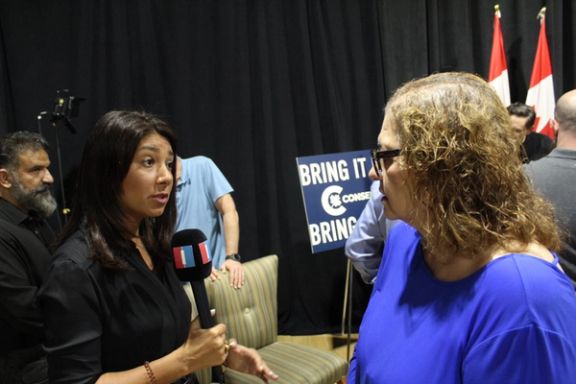
The promise has resonated with a large group of Iranians who have been critical of Canada's Liberal Prime Minister Justin Trudeau over his failure to designate the IRGC as a terrorist organization. There are 73 groups on Canada's terrorist list, but the Revolutionary Guard is not one of them. Ottawa has intensified measures against the regime in recent years, especially following the downing of a civilian airliner by IRGC in 2020 killing dozens of Canadians and the nationwide protests following the death of 22-year-old Mahsa Amini in the custody of police.
Pundit Babak Taghvaee said earlier in the week, “Canada is a Paradise for IRGC terrorists, authorities of Iran's Islamic Regime and their supporters.”
On Saturday, a video went viral in which a supporter of the Iranian regime chanted slogans in support of the Islamic Republic and its leaders Ali Khamenei through a megaphone as he passed through a neighborhood with a lot of Iranian shops and businesses.
So far, Canada has sanctioned 170 Iranian individuals and 192 Iranian entities, including key IRGC and members of the regime’s security, intelligence and economic apparatuses. In 2012, Canada designated Iran as a state supporter of terrorism under the State Immunity Act.
In June, Canada's Senate passed a non-binding motion to designate the the Guards as a terror organization. Ratna Omidvar, an independent senator for Ontario who fled Iran in 1981 and has been campaigning fiercely against the IRGC, said at the time that “the crimes of the Islamic regime and the IRGC go beyond the borders of Iran", citing the contribution of the IRGC to Russia's brutal invasion of Ukraine, for which Iran has supplied kamikaze drones. In June 2018, the Canadian parliament passed another similar motion, introduced by MP Garnet Genuis, to designate the IRGC but the government did not follow up on the action.
The federal government has referred to the IRGC as a terrorist organization, described its leadership as terrorists, announced measures to make its senior members inadmissible to Canada, and has listed the outfit’s extraterritorial expeditionary division Quds Force as a terrorist entity. However, despite numerous calls from the federal Conservative party, activists and even US lawmakers as well as the families of victims of the Ukrainian flight that was shot down by the IRGC, the government has refused to designate the whole entity as a terrorist entity under the country’s Criminal Code.
The airliner was shot down by two air-defense missiles fired by the IRGC as it took off from Tehran’s Imam Khomeini International Airport. All 176 passengers and crew, including 63 Canadians and 10 from Sweden, as well as 82 Iranian citizens on the plane died in the disaster.
Canadian officials said last year that the designation of the group would be too much of a “blunt instrument” that could punish innocent people in Canada who were conscripted into the IRGC as part of their mandatory military service.
Following years of campaigning by human rights activists and Iranians dissidents, Canada finally announced sanctions last November against the IRGC, permanently banning over 10,000 of its officers and other senior officials from entering Canada. However, the ban on regime officials “applies to those who were senior officials at any time from November 15, 2019, onwards,” practically giving the greenlight to a large number of regime officials to reside in Canada.






